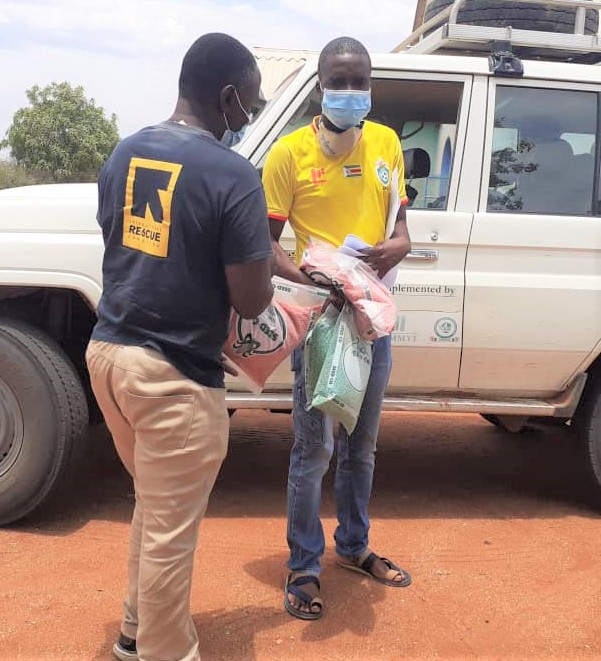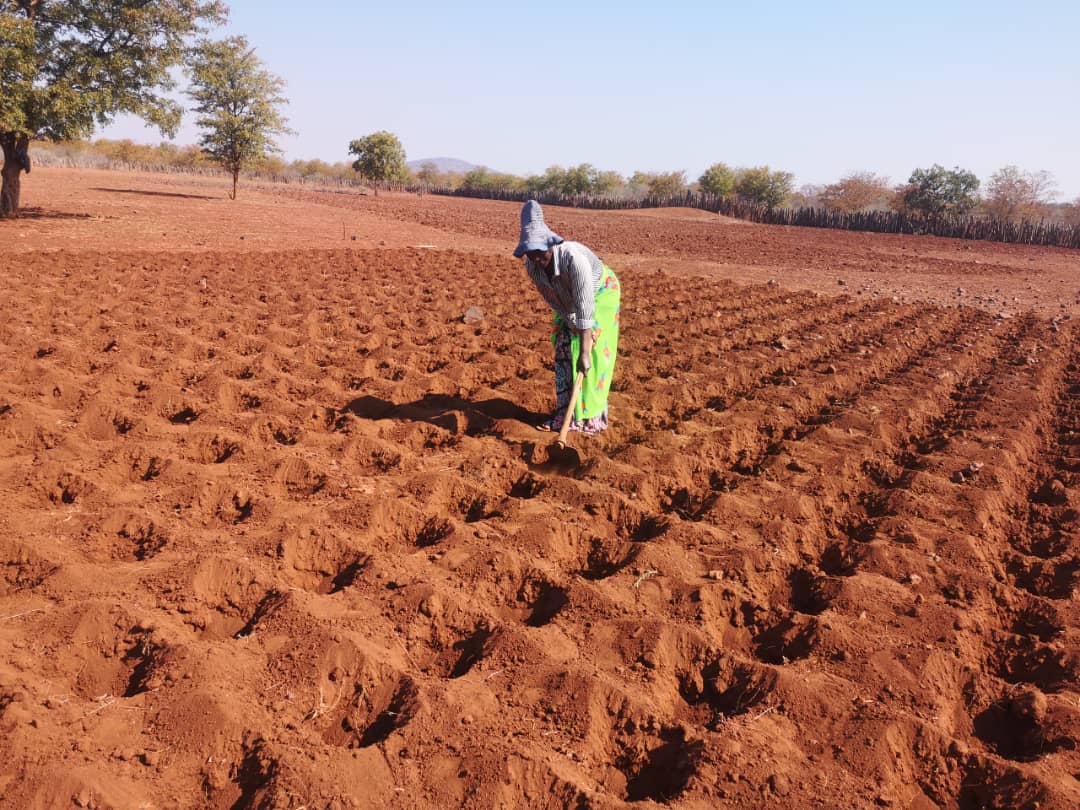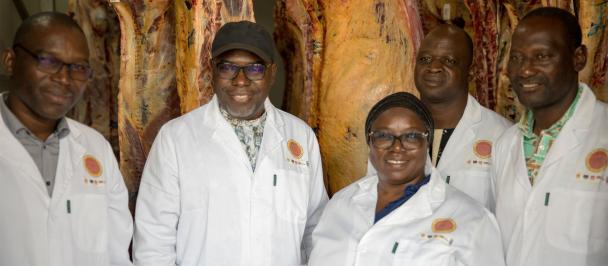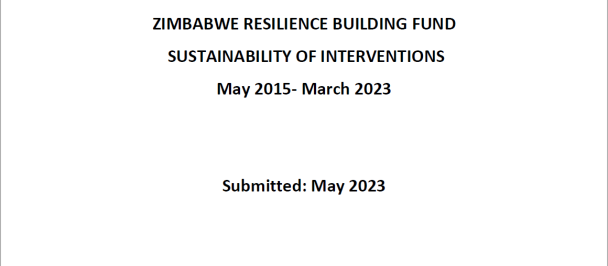Seed distribution of open-pollinated variety seeds, which enables farmers to retain seed after harvest.
The Zimbabwe Resilience Building Fund (ZRBF) and Ministry of Lands, Agriculture, Water and Rural Resettlement are promoting sustainable farming practices to increase both food security and communities’ ability to withstand natural disasters such as drought.
Zimbabwe has been significantly impacted by the effects of climate change – average temperatures rising, and rainfall is decreasing leading to prolonged droughts.
“The drought left us with nothing. We had land but could not use it to meet the needs of our families and our children were not going to school” said Primrose Korera from Magadzire village.
Without adequate support or training on how to manage crops during seasons of low rainfall, farmers are at risk of losing their entire yield. Preparation and inputs such as seed are some of the most important elements in crop production. With support from the European Union, Embassy of Sweden and UK Department for International Development, 2,380 farmers in Beitbridge and Nyanga will contribute to food security. This is being achieved through distribution of open pollinated seed which enables farmers to retain seed after harvest and training in conservation farming.
Monica Mufasa preparing the land using the knowledge acquired from the training
Monica Mufasa of Lesanth Village, in Beitbridge District is among a group of hopeful farmers who received both early maturing seed varieties as well as training on conservation farming from the Program for Growth and Resilience (PROGRESS) consortium on ways to reduce labour and increase yield.
“We are looking forward to harvesting more than what we need for our households and consumption. Each of us is confident of giving back 5kg of the seed for re-distribution to other farmers to address the shortage of seed at household level. We are also expecting to repackage the seed and then sell it to other farmers”, said Monica.
After harvesting, a total of 11,900 kilogrammes of seed will be retained. PROGRESS intends to redistribute 1kg for each beneficiary farmer in cycle 2 thus reaching out to almost 12,000 farmers, improving their access to small grain inputs in the next season. In the long run communities benefiting from the seed pass-on program will have enough seed to grow food and will be safeguarded from spiking prices of inputs thus ensuring income security.
Monica is also part of a group of 9 farmers who are utilizing the demo-plots that have been established in support of the Government of Zimbabwe’s’ Pfumvudza conservation agriculture concept. As part of the 2020/21 season preparedness and in line with scaling up of Resilient and Sustainable Agriculture (RSA), Agricultural Technical and Extension Services (AGRITEX) trained farmers on the Pfumvudza Concept emphasizing planting basins and application of mulch to conserve soil moisture. The practice ensures accumulation of seed banks, food security and effective adaptation to climate change thus contributing significantly to community and household resilience building. This supports ZRBF belief that farmers can produce good yields by using natural resources more efficiently.
The seed pass on from fellow community members is promoting community social capital and peaceful co-existence. Communities in Nyanga and Beitbridge will be able to plant early and in the long run commercialize small grain production ensuring food, nutrition and income security is realized in a more sustainable way.

 Locations
Locations


